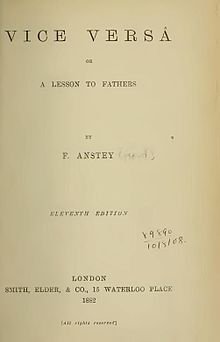Fantasy comedy or comic fantasy is a subgenre of fantasy that is primarily humorous in intent and tone. Typically set in imaginary worlds, fantasy comedy often involves puns on, and parodies of, other works of fantasy.

Robert William Chambers was an American artist and fiction writer, best known for his book of short stories titled The King in Yellow, published in 1895.
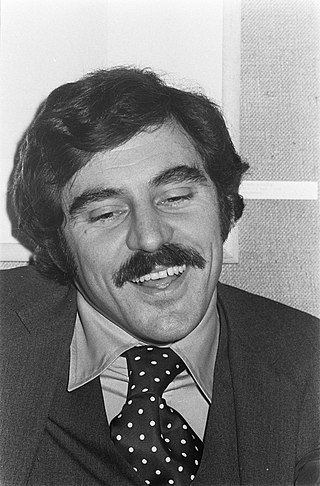
Anthony Newley was an English actor, singer, songwriter, and filmmaker. A "latter-day British Al Jolson", he achieved widespread success in song, and on stage and screen. "One of Broadway's greatest leading men", from 1959 to 1962 he scored a dozen entries on the UK Top 40 chart, including two number one hits. Newley won the 1963 Grammy Award for Song of the Year for "What Kind of Fool Am I", sung by Sammy Davis Jr., and wrote "Feeling Good", which became a signature hit for Nina Simone. His songs have been performed by a wide variety of artists including Fiona Apple, Tony Bennett, Barbra Streisand, Michael Bublé and Mariah Carey.
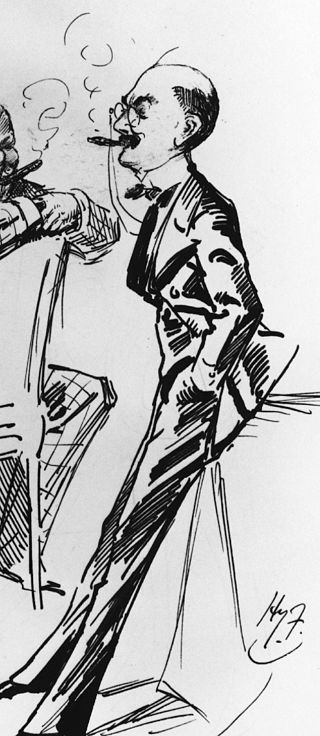
Thomas Anstey Guthrie was an English author, most noted for his comic novel Vice Versa about a boarding-school boy and his father exchanging identities. His reputation was confirmed by The Tinted Venus and many humorous parodies in Punch magazine.
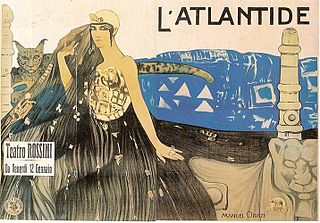
Atlantida is a fantasy novel by French writer Pierre Benoit, published in February 1919. It was translated into English in 1920 as Atlantida. L'Atlantide was Benoit's second novel, following Koenigsmark, and it won the Grand Prize of the French Academy. The English translation of Atlantida was first published in the United States as a serial in Adventure magazine.
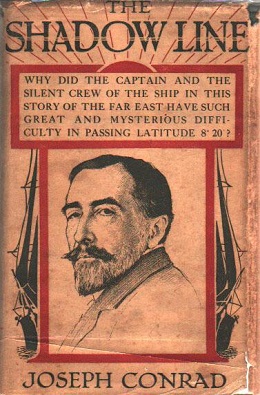
The Shadow-Line is a short novel based at sea by Joseph Conrad; it is one of his later works, being written from February to December 1915. It was first published in 1916 as a serial in New York's Metropolitan Magazine (September—October) in the English Review and published in book form in 1917 in the UK (March) and America (April). The novella depicts the development of a young man upon taking a captaincy in the Orient, with the shadow line of the title representing the threshold of this development.

The House of Dr. Edwardes is a psychological thriller novel written by John Palmer and Hilary A. Saunders under the pseudonym Francis Beeding.

The Son of Tarzan is a novel by American writer Edgar Rice Burroughs, the fourth in his series of twenty-four books about the title character Tarzan. It was written between January 21 and May 11, 1915, and first published in the magazine All-Story Weekly as a six-part serial from December 4, 1915 to January 8, 1916. It was first published in book form by A. C. McClurg & Co. in March 1917 and has been reprinted numerous times since by various publishers.

Tarzan and the Jewels of Opar is a novel by American writer Edgar Rice Burroughs, the fifth in his series of twenty-four books about the title character Tarzan. It first appeared in the November and December issues of All-Story Cavalier Weekly in 1916, and the first book publication was by McClurg in 1918.

Tarzan Triumphant is a novel by American writer Edgar Rice Burroughs, the fifteenth in his series of twenty-four books about the title character Tarzan. The novel was originally serialized in the magazine Blue Book from October, 1931 through March 1932. It should not be confused with the 1943 film Tarzan Triumphs, as the plots are not related.
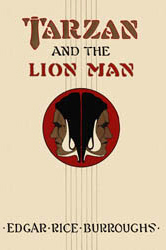
Tarzan and the Lion Man is a novel by American writer Edgar Rice Burroughs, the seventeenth in his series of twenty-four books about the title character Tarzan. The novel was originally serialized in the magazine Liberty from November 1933 through January 1934.

Tarzan's Quest is a novel by American writer Edgar Rice Burroughs, the nineteenth in his series of twenty-four books about the title character Tarzan. Originally serialized in six parts, as Tarzan and the Immortal Men, in The Blue Book Magazine, from October 1935 to March 1936; the first collected edition was published as the 1936 novel Tarzan’s Quest by Burroughs’ own publishing company.

Tarzan and the Forbidden City is a novel by American writer Edgar Rice Burroughs, the twentieth in his series of twenty-four books about the title character Tarzan.
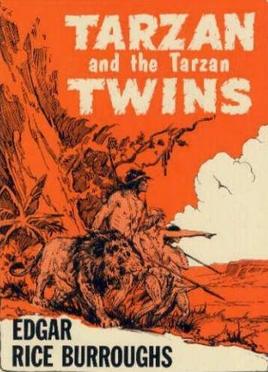
Tarzan and the Tarzan Twins is a collection of two Tarzan novellas by American writer Edgar Rice Burroughs, for younger readers. It was originally published as two children's books, The Tarzan Twins by Voland in October 1927, and Tarzan and the Tarzan Twins, with Jad-bal-ja, the Golden Lion, by Whitman in March 1936. These were brought together in November 1963 under the title of Tarzan and the Tarzan Twins in the first complete edition.

Vice Versa is a 1948 British comedy film written and directed by Peter Ustinov and starring Roger Livesey, Anthony Newley, Petula Clark, and Kay Walsh. It is the third screen adaptation of the 1882 novel Vice Versa by F. Anstey. The film was produced by Two Cities Films and distributed by General Film Distributors.
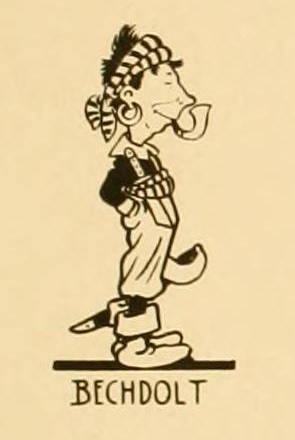
John Ernest Bechdolt (1884–1954) was an American short story writer, novelist and journalist. He wrote under the name Jack Bechdolt as well as his full name. He worked for the Seattle Post-Intelligencer from 1909 to 1916, after which he moved to New York, where he worked for Munsey Publications for a year before freelancing. His first novel, The Torch, was serialized in the magazine Argosy in 1920. Several of his stories were adapted into films.

Vice Versa is a 1988 American comedy film directed by Brian Gilbert and starring Judge Reinhold and Fred Savage. It is the fourth film adaptation of F. Anstey's 1882 novel of the same name, following the British films released in 1916, 1937 and 1948.
Vice Versa is a 1916 British silent fantasy film directed by Maurice Elvey and starring Charles Rock, Douglas Munro and Guy Newall. It is an adaptation of the 1882 novel Vice Versa by Thomas Anstey Guthrie. The screenplay concerns a schoolboy who magically swaps places with his pompous father.
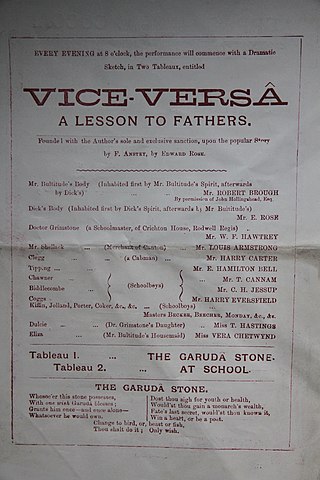
Vice Versa: A Lesson to Fathers is a play by Edward Rose that adapted the 1882 novel of the same name by Thomas Anstey Guthrie. The play debuted at the Gaiety Theatre, London on 9 April 1883. The story is about a body swap between a father and son. Rose played the son in the debut production; Charles Hawtrey played the father.
